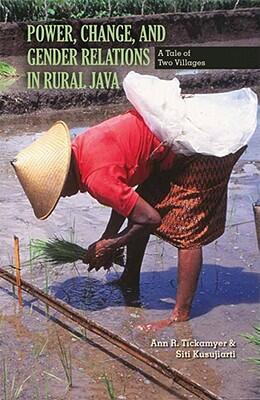
Power, Change, and Gender Relations in Rural Java: A Tale of Two Villages
还没有评分
History
格式
平装书
页数
246
语言
英语
已发布
Jan 16, 2012
出版商
Ohio University Press
版本
1
ISBN-10
0896802841
ISBN-13
9780896802841
描述
In the heart of rural Java, two villages unfold narratives that reveal the intricate dance of power, gender relations, and societal change. Ann R. Tickamyer and Siti Kusujiarti delve deeply into the lives of the villagers, exploring how historical and cultural contexts shape gender dynamics and influence local governance. The authors highlight the resilience and agency of women as they navigate a patriarchal landscape, challenging norms while also grappling with the realities of their roles within the family and community.
Through rich, ethnographic detail, the book contrasts the experiences of the two villages, each with its own unique dynamics and challenges. This comparative approach sheds light on the broader implications of gender relations in rural settings, illustrating how local practices resonate with wider social transformations. The interplay of tradition and modernity becomes a compelling backdrop against which the authors examine the conflicting forces that impact women's lives.
As rural Java confronts the pressures of globalization and socio-economic change, this work invites readers to reflect on the ways in which power structures are negotiated at the local level. Tickamyer and Kusujiarti's insightful analysis provides a nuanced understanding of how gender, culture, and power intersect, making it an essential read for anyone interested in gender studies, rural sociology, or Southeast Asian studies.
Through rich, ethnographic detail, the book contrasts the experiences of the two villages, each with its own unique dynamics and challenges. This comparative approach sheds light on the broader implications of gender relations in rural settings, illustrating how local practices resonate with wider social transformations. The interplay of tradition and modernity becomes a compelling backdrop against which the authors examine the conflicting forces that impact women's lives.
As rural Java confronts the pressures of globalization and socio-economic change, this work invites readers to reflect on the ways in which power structures are negotiated at the local level. Tickamyer and Kusujiarti's insightful analysis provides a nuanced understanding of how gender, culture, and power intersect, making it an essential read for anyone interested in gender studies, rural sociology, or Southeast Asian studies.